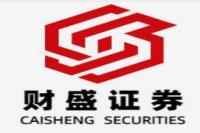China-EU EV Tariff Deal: Navigating the Complexities of a Global Trade Agreement (Meta Description: China, EU, electric vehicles, tariffs, trade agreement, subsidies, negotiations, global trade)
Dive into the intricate world of international trade negotiations! The recent buzz surrounding a potential China-EU agreement on electric vehicle (EV) tariffs has everyone talking. It's a high-stakes game of give-and-take, involving billions of dollars and shaping the future of the global automotive industry. This isn't just some dry policy document; it's a story of intense diplomacy, strategic maneuvering, and the relentless pursuit of economic advantage. Imagine the pressure! Negotiators are juggling competing interests, grappling with complex legal frameworks, and striving to find a solution that satisfies both sides. This isn't just about numbers on a spreadsheet; it’s about jobs, economic growth, and the global shift towards sustainable transportation. We’ll unpack the key players, the underlying issues, and the potential impact of this agreement – not just on China and the EU, but on the entire world. Get ready to unravel the mysteries of this critical trade deal and understand its far-reaching implications. We'll explore the nuances of the negotiations, offering insights that go beyond the headlines and delve into the real-world complexities. So buckle up, because this is going to be a fascinating ride! We'll look at the history of the dispute, the challenges involved in reaching a consensus, and ultimately, what a successful resolution might look like. It’s a story of cooperation and competition, of compromise and ambition – a microcosm of the global economic landscape.
Electric Vehicle Tariffs: The Heart of the Matter
The recent announcement from the Chinese Ministry of Commerce regarding ongoing negotiations with the EU on EV tariffs has sparked considerable interest. The key issue revolves around the EU's investigation into potential anti-subsidization practices by Chinese EV manufacturers. This investigation led to the threat of significant tariffs on Chinese EVs entering the EU market – a move that could severely impact Chinese exports and the overall global EV landscape. Think of it like this: it's a trade war brewing, but instead of tanks and missiles, we're talking about Teslas and BYDs. The stakes are high, impacting not only profits but also the environment and the future of sustainable transportation. The EU's concerns center on the alleged state support given to Chinese EV companies, potentially creating an unfair competitive advantage in the European market. This isn't just about protecting European manufacturers; it's about ensuring fair competition and leveling the playing field globally. Now, picture this: a carefully crafted agreement could help maintain a smooth flow of EVs, supporting sustainable energy goals and preventing trade disruptions. But failure to reach a compromise could lead to a trade war, impacting consumers and economies worldwide.
The proposed solution involves a "price undertaking," a commitment by Chinese manufacturers to price their EVs above a certain floor, effectively mitigating the EU's concerns about unfair subsidies. This is a delicate balancing act: the price needs to be high enough to satisfy the EU's concerns but low enough to remain competitive in the European market. It's a bit like a high-wire act, requiring careful calibration to avoid a catastrophic drop. The negotiations are complex, involving intricate legal and economic considerations, and require a deep understanding of both the EU and Chinese regulatory frameworks.
Understanding the Negotiation Process
The negotiations between China and the EU are characterized by a careful dance of diplomacy and economic strategy. Both sides have strong interests at stake, which necessitates a collaborative, yet competitive approach. The process involves multiple layers of stakeholders, from government officials and industry representatives to legal experts and economists. Think of it as a complex web of interconnected interests, where each player needs to carefully consider the potential implications of their actions.
The progress reported by the Chinese Ministry of Commerce indicates a degree of optimism, but also highlights the ongoing challenges. The phrase "mutual accommodation" underlines the need for both sides to make concessions to reach a mutually acceptable outcome. This isn't about winning or losing, but about finding a compromise that benefits both parties in the long run. The "务实, 平衡" (practical, balanced) approach emphasizes the need for a realistic and equitable agreement.
Key Players Involved:
- China: Ministry of Commerce (MOFCOM), Chinese EV manufacturers (e.g., BYD, NIO, XPeng).
- EU: European Commission, EU member states, European EV manufacturers (e.g., Volkswagen, Stellantis, Renault).
Challenges in the Negotiation:
- Differing economic systems: The differences between the centrally planned Chinese economy and the market-based economies of EU member states can lead to conflicting interpretations of subsidies and fair competition.
- Political considerations: The negotiations are intertwined with broader geopolitical relations between China and the EU, adding another layer of complexity.
- Industry interests: Balancing the interests of competing domestic EV manufacturers in both China and the EU is crucial.
The Potential Impact of the Agreement
The outcome of these negotiations will have far-reaching consequences for the global EV industry. A successful agreement would foster stability and predictability in the market, encouraging further investment and innovation in the sector. It would also promote cooperation between China and the EU on addressing climate change, as both sides are committed to transitioning towards sustainable transportation systems. Conversely, failure to reach an agreement could lead to trade disputes, higher prices for consumers, and uncertainty for investors. It could also damage the relationship between China and the EU, potentially hindering cooperation on other important issues.
Frequently Asked Questions (FAQs)
Q1: What is the current status of the negotiations?
A1: According to the latest statement from the Chinese Ministry of Commerce, negotiations are ongoing and have shown some progress. However, a final agreement has not yet been reached.
Q2: What are the main sticking points in the negotiations?
A2: The primary challenge lies in defining the appropriate level of price commitments that would satisfy the EU's concerns about anti-subsidization while ensuring the Chinese EV industry remains competitive.
Q3: What would be the impact of a successful agreement?
A3: A successful agreement would promote trade, reduce uncertainty for investors, and encourage further investment in the EV industry. It would also foster cooperation between China and the EU on climate change goals.
Q4: What would be the impact of a failed agreement?
A4: A failed agreement could lead to retaliatory tariffs, trade disputes, higher prices for consumers, and overall uncertainty in the global EV market.
Q5: How might this agreement impact consumers?
A5: A successful agreement could lead to more affordable and readily available EVs in the EU market. Conversely, a failed agreement could lead to higher prices or even reduced availability of certain Chinese-made EVs.
Q6: What is the timeframe for reaching an agreement?
A6: There is no official timeframe, though both sides are likely under pressure to reach an agreement as soon as possible to avoid prolonged uncertainty and potential trade disruptions.
Conclusion: A Balancing Act for Global Trade
The China-EU EV tariff negotiations present a critical juncture for global trade and the future of electric vehicles. The outcome will significantly impact both economies, the global automotive industry, and the wider push towards sustainable transportation. The need for a "practical and balanced" solution, as emphasized by the Chinese Ministry of Commerce, highlights the inherent complexities involved in navigating international trade disputes. As the negotiations continue, the world watches closely, hoping for a mutually beneficial agreement that promotes both economic prosperity and environmental sustainability. The future of electric mobility, and indeed, a significant aspect of global trade, hangs in the balance. This is a story that will continue to unfold, with potentially significant impacts on the global economy and the environment. Stay tuned.



